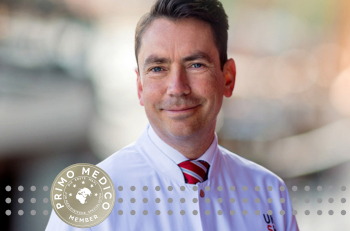Specialists in Pancreatic surgery
6 Specialists found
Information About the Field of Pancreatic surgery
Pancreas surgery - indication, procedure and chances of recovery
The pancreas is a very important organ. It enables us to break down and absorb the fats that are in our food. This is important also because vitamins A,E,D and K can only be taken up along with fats.
Simultaneously, the pancreas produces insulin. It is an enzyme that helps our cells to take up sugar and it regulates blood sugar levels. The pancreas measures 15-20 cm in length and can be divided into a head, body and tail.
What is pancreas surgery?
Pancreas surgery is a subspecialty of visceral surgery. Various disorders of the pancreas are associated with damage to the pancreas and its function. Among these are acute and chronic pancreatitis (inflammation of the pancreas) and pancreatic carcinoma (cancer of the pancreas).
Any of these conditions can lead to complications that make pancreatic surgery necessary.
When is pancreas surgery carried out?
While acute pancreatitis may be harmless, it can also take a very dangerous course. In particular, the necrotizing form (local tissue death) may result in multi-organ failure and requires surgical treatment. Additionally, the cause must be found and treated.
Gallstones
Gallstones which are lodged at the junction of the biliary and pancreatic ducts with the small intestine frequently lead to an obstructed outflow of bile. As digestive enzymes back up into the pancreas, they cause pancreatic self-digestion.
Chronic inflammations
If medication is not sufficient, chronic inflammation has to be treated by pancreatic surgery for symptom relief. Usually, chronic inflammation leads to inflammatory swelling at the head of the pancreas, resulting in obstruction of the outflow, pressure on the area around the pancreas, and severe pain.
Pseudocysts
Pseudocysts (fluid-filled space in the pancreas, particularly in chronic pancreatitis) must be removed only in case of discomfort and as of a certain size.
Pancreatic Cancer
Malignant changes as defined by pancreatic cancer should be surgically removed by pancreatic surgery as the first step of treatment, where possible. This is only possible in 20% of cases, however, assuming the tumor is not too large and enough healthy residual tissue can be preserved.
What is the procedure for pancreatic surgery?
An extensive collection of information is carried out at the beginning of each treatment. It includes a detailed patient interview as well as a physical examination. Blood tests can also give indications of inflammation, current pancreatic function and a potential tumor.
Additional investigations such as ultrasound, CT and the endoscopic procedures (MRCP, ERCP) can establish the precise extent and type of pancreatic disease.
Pancreatic surgery for inflammation of the pancreas
In the case of acute necrotizing inflammation of the pancreas, the abdominal surgeon (visceral surgeon) will resect the inflamed or dead tissue. A drain is placed to inhibit the inflammation from spreading further. A drain is a plastic tube through which pus and inflammatory fluid can flow out.
With chronic pancreatitis, a visceral surgeon may need to remove the engorged head of the pancreas in surgery. During this procedure, the duct within the pancreas that gathers enzymes and transports them to the intestines is cut open, and any gallstones are removed. Then, a piece of small intestine is sutured onto the opened pancreatic duct. This is now the new entrance pathway for the digestive enzymes.
Pancreas surgery for pancreatic cancer
If a malignant tumor of the pancreas is found (provided it is small enough and within the head of the pancreas), it is necessary to remove not only the head of the pancreas, but also portions of the small intestine, gallbladder, and perhaps sections of the stomach (Whipple procedure).
In case the tumor is located in the tail of the pancreas, then the visceral surgeon can remove only the left portion of the pancreas. In certain cases, it is necessary to remove the spleen at the same time.
Once the tumor is too large and can no longer be completely removed, the goal of the surgery is to alleviate the symptoms. For example, the drainage of digestive enzymes and bile can be surgically ensured.
Liquid contained in pseudocysts of the pancreas can be quickly and relatively easily drained by puncturing it with a thin needle.
What are prognosis and course of the disease like after pancreatic surgery?
When treating pancreatic cancers, the surgery is followed by chemotherapy. After that, during a stay at a rehabilitation facility, patients can be taught everything they need to know about their new life after surgery. Nutritional counseling is an important part of this.
In any case, regular tumor follow-up checks are important. This allows early detection of any recurrence of pancreatic cancer, but also allows to check the adequate function of the pancreas. All patients must be completely off alcohol.
Acute inflammations are well treatable and usually heal without consequences. If the inflammation is caused by gallstones, a visceral surgeon will have to remove the gallbladder to prevent more stones from forming which would cause another inflammation.
After removal of the pancreatic head as a result of chronic inflammation, normal day-to-day life is still possible, however, patients may need to take substitute enzymes and vitamins.
Which specialists and clinics are pancreas specialists in Germany, Austria and Switzerland?
If you're in need of pancreas surgery, you expect the best medical care possible. So of course patients are curious to find the best clinic for pancreatic diseases in Germany, Switzerland or Austria.
As there is no objective way to answer this question and a legitimate doctor would never claim to be the best, patients must rely on a doctor's experience. The more pancreas surgeries doctors perform, the more experienced they become in their field of expertise. This has been confirmed by AOK in a study that correlates high numbers of surgeries with good surgical results.
Hence, specialists for pancreas surgeries are visceral surgeons who perform more than 10 complex pancreatic procedures yearly. They are the right specialists for you to consult when it comes to pancreas surgery, due to their experience and long-term practice in visceral surgery with a focus on pancreatic surgery.
Sources:
- www.krebsinformationsdienst.de/tumorarten/bauchspeicheldruesenkrebs/bauchspeicheldruesenkrebs2.php
- Henne-Bruns, Doris; Barth, Harald (2012): Chirurgie. 4., aktualis. Aufl. Stuttgart [u.a]: Thieme (Thieme Electronic Book Library).
- Herold, Gerd (2014): Innere Medizin. Eine vorlesungsorientierte Darstellung ; unter Berücksichtigung des Gegenstandskataloges für die Ärztliche Prüfung ; mit ICD-10 Schlüssel im Text und Stichwortverzeichnis. Köln: Herold.
Medical Articles
Pancreatic Cancer, a Death Sentence, Prof. Tobias Keck?
Pancreatic cancer is considered one of the most feared types of cancer. Is the term “death sentence” still justified today? What progress has been…







